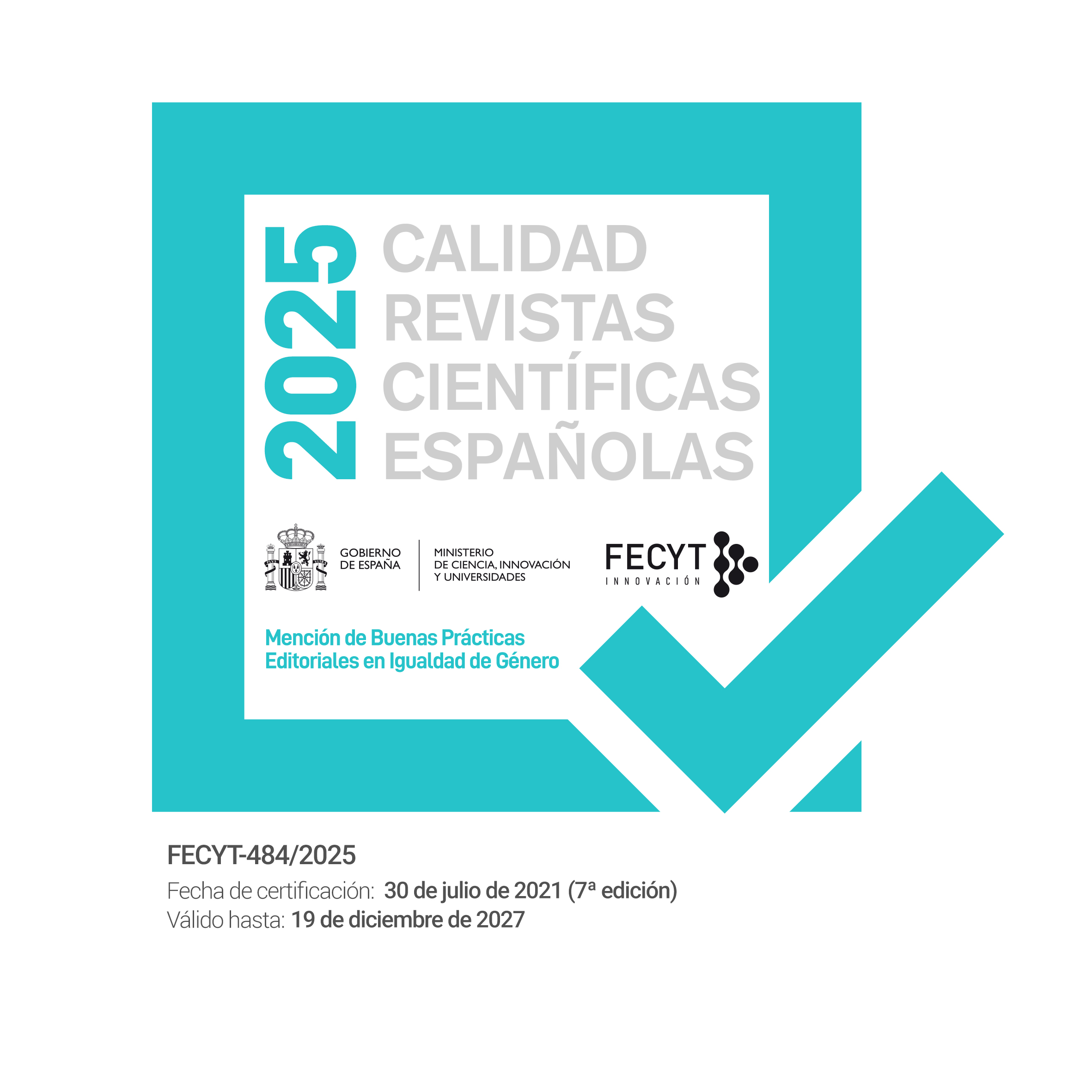The aesthetic-pedagogical thought of Joseph Beuys: between memory and performance
DOI:
https://doi.org/10.5944/hme.5.2017.16797Keywords:
Aesthetics of memory, Trauma, Pedagogy, Education, Bildung, Performance, PostmodernityAbstract
The figure of the German artist Joseph Beuys (1921-1986) stands out not only for their artistic creations but for having created a complex and suggestive aesthetic-pedagogical discourse whose outline we offer here. The focus of attention will be tow and for its temporal specificity the will be presented as follows: the first start from the ruins of World War II to address issues relating to the crisis of language and the subject and to highlight the efforts of the artist to set up a theoretical and practical discourse on the aesthetics of memory, a process of anamnesis able to dismantle the institutionalized silence about Nazism. The second traces the sixties to the eighties, when Beuys adopted the performance as a means of expression and exegesis. A concept and practice that will be joined by others as Formung (plastic deformation), social plastic or social sculpture that ultimately allow us to outline what education means in postmodern times.
Downloads
References
AA.VV. Manresa-Hauptbahnhof: una experiència de Joseph Beuys a Catalunya inspirada en Ignasi de Loiola i Manresa. Barcelona: Fundació Caixa de Manresa, Generalitat de Catalunya, 1994.
Adorno, Theodor. «Commitment». In The Essential Frankfurt School Reader, edited by Andrew Arato and Eike Gebherdt. Blackwell: Oxford, 1978.
Adorno, Theodor. Educación para la emancipación .Madrid: Ediciones Morata, 1998.
Arendt, Hannah. Entre el pasado y el futuro: ocho ejercicios sobre la reflexión política. Barcelona: Península, 1996.
Arendt, Hannah. Hombres en tiempos de oscuridad. Barcelona: Gedisa, 1990.
Arendt, Hannah. Los orígenes del totalitarismo. Madrid: Alianza Editorial, 2006.
Ayers, Robert. «Marina Abramovic». Accessed April 20, 2016. http:// www.artinfo.com/ news/ story/ 1537/ marina-abramovic/
Bauman, Zigmund. Modernidad y Holocausto. Madrid: Sequitur, 2006.
Benjamin, Walter. La obra de arte en la época de su reproductibilidad técnica. México D.F: Itaca, 2003.
Bernárdez Sanchíz, Carmen, trans. «Discurso sobre mi país». In Joseph Beuys. Hondarribia: Nerea, 1999.
Beuys, Joseph, and Clara Bodenmann-Ritter. Joseph Beuys: cada hombre, un artista: conversaciones en Documenta 5-1972. Madrid: Editorial Visor, 1995.
Beuys, Joseph, Koepplin Dieter, and Caroline Tisdall. Joseph Beuys: The Secret Block for a Secret Person in Ireland. Basilea: Kunstmuseum, 1977.
Beuys, Joseph. Ensayos y entrevistas. Madrid: Síntesis, 2006.
Bruner, Jerome. Actos de significado. Más allá de la revolución cognitiva. Madrid: Alianza Editorial, 1991.
Casanova, Julián. Europa contra Europa, 1914-1945. Barcelona: Crítica, 2011.
Clark, Toby. Arte y propaganda en el siglo XX: la imagen política en la era de la cultura de masas. Madrid: Akal, 2000.
Colom, Antoni J. La pedagogía institucional. Madrid: Síntesis Educación, 2000.
Comellas, José Luis. La guerra civil europea (1914-1945). Madrid: Rialp, 2010.
Derrrida, Jacques. El monolingüismo del otro, la prótesis del origen. Buenos Aires: Manantial, 1997.
Foster, Hal, et al., Arte desde 1900: modernidad, antimodernidad, Posmodernidad. Madrid: Akal, 2006.
Hartley, Keith, ed. The Romantic Spirit in German Art: 1790-1990. Londres: Thames and Hudson, 1994.
Heibel, Yule F. Reconstructing the Subject: Modernist Painting in Western Germany, 1945-1950. Princeton: University Press, 1995.
Holffreter, Peter, et al., «Konununi1cation, l». Düsseldorf, 1973. Accessed September 23, 2016. http://www.ddooss.org/articulos/entrevistas/Joseph_Beuys.htm.
Kuspit, Donald. «Beuys: Fat, Felt, and Alchemy». In The Critic Is Artist: The Intentionality of Art, edited by Ann Arbor. UMI: Research Press, 1984.
Mennekes, Friedhelm. Pensar Cristo. Barcelona: Herder, 1997.
Moreu, Ángel C. «Pedagogia política i Política educativa». Temps d’Educació 24 (2000): 141-167.
Mosse, George L. De la Grande Guerre au totalitarisme. La brutalisation des societés européennes. París: Hachette, 1999.
Nietzsche, Friedrich Wilhelm. Segunda consideración intempestiva: sobre la utilidad y los inconvenientes de la historia. Buenos Aires: Libros del Zorzal, 2006.
Nolte, Ernst . La guerra civil europea, 1917-1945. Nacionalsocialismo y bolchevismo. México: Fondo de Cultura Económica, 2001.
Plouffe, Paul-Albert. «Joseph Beuys: Avers et revers» Parachute 21 (1980).
Preston, Paul. «La Guerra Civil europea: 1939-1945». In El siglo XX. Historiografía e historia, edited by Mª Cruz Romeo and Samuel Sanz, 137-166. Valencia: Universidad de Valencia, 2002.
Quiroga, Patricia, and Olivia Girard. «La expansión de la pedagogía Waldorf: un análisis histórico». Temps d’Educació 48 (2015): 91-109.
Rosental, Norman, and Heiner Bastian. Joseph Beuys: The Secret Block for a Secret Person in Ireland. London: Art Books Intl Ltd.,1999.
Saltzman, Lisa. Anselm Kiefer and Art after Auschwitz. Cambridge: Cambridge University Press, 1999.
Sarraceno, Chiara. Experiencia y teoría de las comunas infantiles: de la educación antiautoritaria a la educación socialista. Barcelona: Editorial Fontanella, 1977.
Schiller, Friedich. Cartas a la educación estética del hombre. Buenos Aires: Aguilar, 1981.
Schuster, Peter-Klaus. «El hombre creador de sí mismo. Durero y Beuys o la profesión de fe en la creatividad». Elementos 26 4 (1997).
Stachelhaus, Heiner. Joseph Beuys. Barcelona: Parsifal Ediciones, 1990.
Steiner, George. Lenguaje y silencio. Ensayos sobre la literatura, el lenguaje y lo inhumano. Barcelona: Gedisa, 1994.
Steiner, George. Pasión intacta. Madrid: Siruela, 1997.
Steiner, Rudolf. La filosofía de la libertad. Fundamentos de una concepción moderna del mundo. Madrid: Editorial Rudolf Steiner, 1999.
Steiner, Rudolf. Le triple aspect de la questions sociale. Paris: Librairie Fischbacher, 1921.
Traverso, Enzo. A sangre y fuego: De la guerra civil europea (1914-1945). Valencia: Publicaciones de la Universidad de Valencia, 2009.
Ulmer, Gregory. Applied grammatology: post(e)-pedagogy from Jacques Derrida to Joseph Beuys. Baltimore: Johns Hopkins University Press, 1985.
Walters, Victoria. Joseph Beuys and the Celtic Wor(l)d. A language of healing. Zurich: LIT Verlag, 2012.
Wyneken, Gustav. Las Comunidades escolares libres. Madrid: Revista de Pedagogía, 1926.
Zweig, Stefan. El món d’ahir: memòries d’un europeu. Barcelona: Quaderns Crema, 2001.
Downloads
Published
How to Cite
Issue
Section
License
Authors who publish in Historia y Memoria de la Educación agree to the following terms:
- Authors retain copyright and grant the journal right of first publication with the work simultaneously licensed under a Creative Commons Attribution-NonCommercial 4.0 International that allows others to share the work with an acknowledgement of the work's authorship and initial publication in this journal.
- Authors are able to enter into separate, additional contractual arrangements for the non-exclusive distribution of the journal's published version of the work (e.g., post it to an institutional repository or publish it in a book), with an acknowledgement of its initial publication in this journal.
- Authors are permitted and encouraged to post their work online (e.g., in institutional repositories or on their website) prior to and during the submission process, as it can lead to productive exchanges, as well as earlier and greater citation of published work (See The Effect of Open Access).












